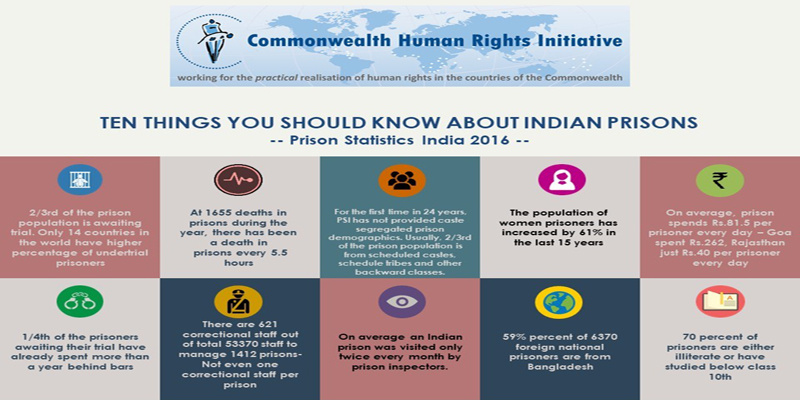Prison Reform : Why Prison Reforms?
Positioned at the very end of the criminal justice system, prisons and prisoners get minimal attention. Intended to keep the convicted away from society, prisons are often places of injustice with little possibility of rehabilitation. In many Commonwealth countries, particularly where a legacy of colonialism has left the police unaccountable, where the judiciary is slow and the bar uncaring, prisons are full to overflowing with people yet to be proven guilty of a crime. All too often, they remain jailed for longer than the maximum sentence they would have received–if properly tried. Many have not had the benefit of a lawyer. Several are juveniles, mentally ill, jailed for petty crimes that don’t demand incarceration or just unwanted. Most have little idea of why they are inside. Almost all are poor.

In India, 70 percent of the prison population is either illiterate or educated below high school. Majority of these people remain in prison pending trial or conviction. Most recent statistics reveal that 67.7 percent of the prisoners are under trials and may continue to be held in overcrowded prisons for years. This makes them one of the weakest sections of society.
Poor public defense and underutilisation of non-custodial measures add to the growing malaise of unnecessary or prolonged detention. Lack of inspections and sketchy implementation of oversight mechanisms turn prisons into frightening wrecks with shoddy living conditions. This rot in the criminal justice system impacts the psychological condition of a prisoner making the person more vulnerable than before to criminal propensities. The prisoner gets out of jail ruined and not reformed.
A person behind bars is not beyond justice. It is important to cure the malaise the system suffers from. Increasing transparency of a traditionally closed system and holding the stakeholders accountable for the gaps can ensure that legal safeguards reach out to the last person in the queue – the prisoner.